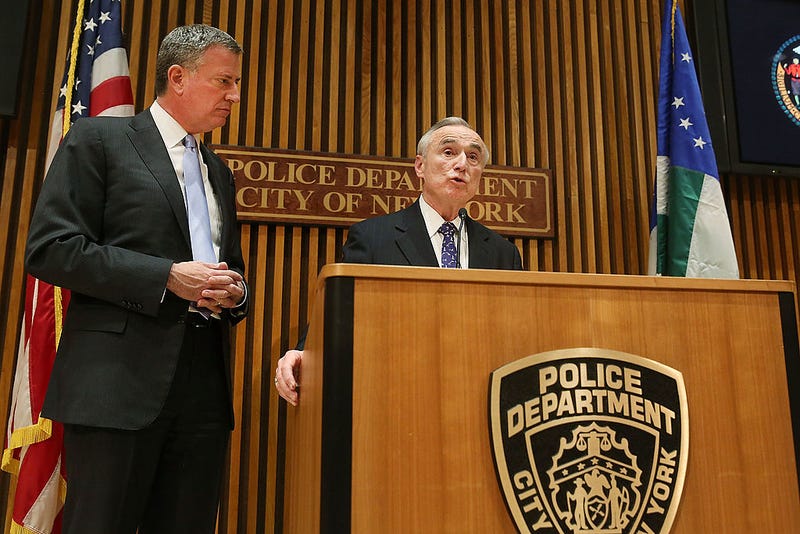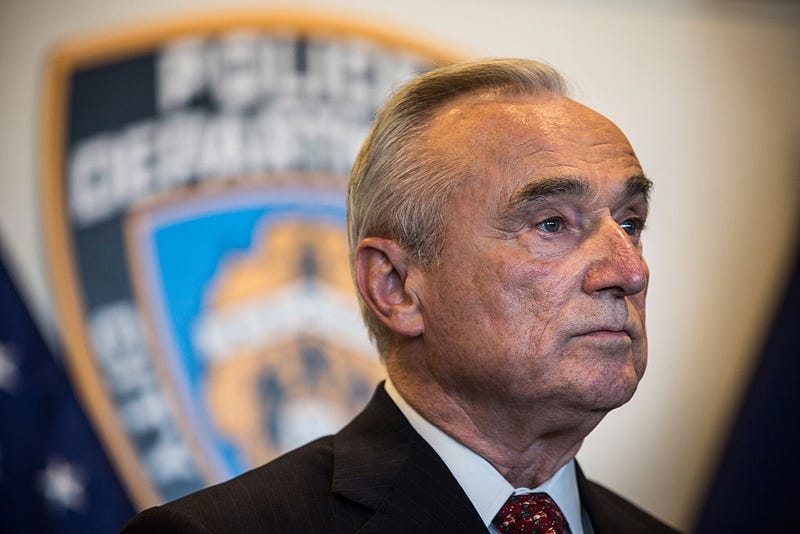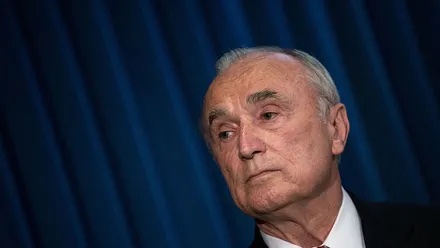
-
Businesses Flock to Downtown Brooklyn as Growth Shifts from Manhattan to Outer Boroughs
Post Views: 655By Joe Connolly and Neil A. Carousso
NEW YORK (WCBS 880) — The COVID-19 pandemic has caused a seismic shift in how businesses operate and where they are located with the larger adoption of remote and hybrid work. One of the biggest economic shifts that has developed is the new growth of business in the boroughs outside of Manhattan.
The decentralizing of Manhattan is a topic the WCBS Small Business Spotlight, sponsored by Dime Community Bank, has been following closely over the past two and a half years. The Partnership for New York City tells WCBS 880 that Brooklyn is now the fastest growing borough driven by new technology startups.
“People really want to be in the center of things, but they also want the amenities of living in Brooklyn, which means access to the great residential communities,” said Regina Myer, president of the Downtown Brooklyn Partnership.
Myer noted Downtown Brooklyn is booming because after enjoying the convenience of remote work, people prefer to work in the same neighborhoods where they live. That has lifted local businesses.
“It used to be dominated by the courts, the Board of Education and shopping on Fulton Street,” she said. “And now, It’s still shopping on Fulton Street, but it’s also shopping at City Point, it’s also a lot of residential and a lot of people are coming to Downtown Brooklyn to live because it’s so easy to get around.”
Architectural and design firm FXCollaborative is erecting mixed-use buildings throughout Downtown Brooklyn that serve businesses and residents. It decided to move its own headquarters from Manhattan to One Willoughby Square, a mixed-use building FXCollaborative designed on Duffield Street.
“We became one of the first tenants in the building and took three floors,” said FXCollaborative senior partner Dan Kaplan. “So many of our architects and professional staff and overall staff live very close to Downtown Brooklyn.”
The architect’s philosophy for the post-pandemic city can be boiled down to what he calls a “15-minute community.”
“That means anything that you care about whether it’s working, living, playing, learning, culture, civic infrastructure, green space, recreation is all within 15 convenient minutes – healthcare – 15 convenient minutes from where you live,” said Kaplan.
FXCollaborative has designed office spaces that are open and airy.

FXCollaborative is erecting mixed-use buildings throughout downtown Brooklyn that serve businesses and residents. Photo credit FXCollaborative “Everybody thirsts for and loves a connection to nature, to daylight, to greenery, to the changing of the sky, to the changing of the seasons, and this notion of a building that feels like it’s connected to its greater environment is really what drives us and drives our design.”
Despite the growth in downtown Brooklyn as employees seek a hybrid work utopia, both Kaplan and Myer believe its proximity to Manhattan via the subway is beneficial because the island is still the engine that drives New York’s economy.
“The reports of the death of the office buildings are greatly exaggerated,” said Kaplan.
The FXCollaborative senior partner noted on the Small Business Spotlight that satellite offices were not widely utilized as predicted after 9/11.
“What happened was that was great, except for people started saying, ‘Well that’s good, but I’m going to be in the center, right? I’m not going to be in one of those satellites.’ So, there is this idea of enterprises needing to be close to each other and have an established culture, themselves.”
“That’s pretty obvious when people come here, they feel like it’s urban and it’s connected, but it’s also different from Midtown Manhattan and Lower Manhattan. And I think that’s really to our advantage,” said Myer.
The fastest growing industries in the business district, according to the Downtown Brooklyn Partnership leader, are technology and media.
“We have companies like Gimlet Media, which are now part of the Spotify umbrella at 41 Flatbush,” Myer said. “Podcasting and a lot of tech and media is really comfortable not being in the center of things and being in Brooklyn. And that’s really been terrific to have companies with that kind of energy who are that forward thinking.”
See more about the growth of downtown Brooklyn and the beautiful new mixed-use buildings on the WCBS Small Business Spotlight video above.
-
Amid worsening supply chain issues, NJ uniform maker moves manufacturing in-house
Post Views: 465By Joe Connolly and Neil A. Carousso
ELMWOOD PARK, NJ (WCBS 880) — The supply chain woes appear to be getting worse.
Bergen County-based Turn 2 Sports, LLC makes sports equipment and uniforms for schools. Their production times have dramatically increased during the pandemic, and now, major brands such as Adidas and Nike are already placing orders for next year.
“In the old days, you could be able to order for next week and be readily available. Now, it’s order four to six months in advance and hope that you get it,” said Turn 2 Sports founder James T. Gregory on the WCBS Small Business Spotlight, sponsored by Dime Community Bank.
“We had orders that we placed in November that are due to ship in June and we’re being told that they’re going to be delayed until September/October,” he said. “So, the supply chain issues are 100 percent getting worse.”
Gregory said he has had to tell school officials to track down foul balls at baseball games because they do not have enough inventory to replace sports equipment.
“We’re trying to change our approach to if we see something available, you got to go out and get it. You can’t just hope that it’s going to be there in six months or even a month from now because somebody already went and picked it up,” he said.
The Turn 2 Sports owner told WCBS 880 he blames the supply crunch on steep competition against larger companies, labor shortages, and COVID-19 lockdowns in China that have crippled global supply chains.
“You have a lot of manufacturers who are trying to keep up with the demand just like every other manufacturer out there, but it’s just this domino effect. If you don’t have truck drivers to get product into warehouses, if you don’t have warehouse labor to unload those trucks, you can’t keep up with everything that’s going on,” said Gregory.
In an effort to cut out the middle man, Turn 2 Sports brought its manufacturing home.
“We brought in our own manufacturing to cut out the contracting that we were giving out,” he said.
Doing all embroidery and shirt printing in their Elmwood Park, NJ headquarters has streamlined their production process.
“It’s an investment into the business but I think for us to be able to continue to sustain our business and our growth, we had to bring in our own manufacturing and our own supply chain management.”
Gregory believes the short-term costs to produce clothing in-house will pay off long-term.
See the full story on the WCBS Small Business Spotlight video above.
-
Top Business Leader Says Crime is Slowing NYC’s Recovery
Post Views: 675By Joe Connolly and Neil A. Carousso
NEW YORK (WCBS 880) — New York City’s crime surge is threatening the economic recovery as many workers resist the return to offices.
“This is a setback,” said Partnership for New York City president and chief executive officer Kathryn S. Wylde on the WCBS Small Business Spotlight, sponsored by Dime Community Bank.
Office occupancy in the city is just 37.1 percent, according to security firm Kastle Systems which tracks building access activity among its partners in the top 10 U.S. markets.
“I think that for the time being, particularly with the subway shooting that was such a shock to New York City and to commuters but everybody, I do think that we’re going to see actually a slowdown in the return to office temporarily,” Wylde said.
“What we’ve got to think about is how we rebuild and restore confidence so that we can have a very robust return in the fall of 2022.”
A recent Morning Consult poll on behalf of the Partnership for New York City found concerns about public safety is the biggest deterrent for commuters. Ninety-four percent of those surveyed said not enough is being done to address homelessness and mental illness in the city, followed by gun violence, namely in the subway system. The poll was conducted online about a month before the April 12 shooting on the N-train in Sunset Park, Brooklyn that left 29 people injured.
But, Wylde notes most New Yorkers do want to participate in the city’s ongoing pandemic recovery, 70 percent, in fact, according to the group’s survey.
“New Yorkers are very resilient and very special,” she said. “Living in our city is not easy as you know, but for those who find it the best city in the world, they want to stay here, they want to help rebuild, and I’m confident we’re going to do that.”
The business leader predicts there will be fewer employees in Manhattan offices going forward, but not that many fewer because younger employees will realize the benefits of in-person work to advance their careers.
“We have about 60 percent of the office workers are young people who, you know, have gotten used to working from home and don’t appreciate the office culture, and how much you learn, and how you gain mentors, and how you advance is also through personal interactions in the office,” said Wylde.
Earlier this month, the city broke ground on a new office building in East New York, Brooklyn. It’s phase one of Mayor Eric Adams’ plan to open office buildings in residential neighborhoods outside Manhattan, which have been more populated since COVID hit.
“As people have worked from home, they’ve really partnered with their local restaurants and merchants and service providers to make sure that they survive. We want to see that in every neighborhood of the city, because we’ve got an infrastructure, we’ve got over 200,000 small businesses and they’re looking for foot traffic,” Wylde, who advises political leaders on business policies, said.
She told WCBS 880 it would only make sense if the city creates affordable housing in these neighborhoods and if the state, which operates the MTA, rethinks the transportation system to offer direct routes to the outer boroughs.
“The governor has proposed a Brooklyn to Queens express rail operation, which makes a lot of sense because (of) the people who were going to work both in the city buildings and the other activities that are going on,” said Wylde, adding, “We’re going to have to have a much more flexible and integrated transportation system. And that’s something we ought to be thinking about right now. We shouldn’t just continue with our current plans.”
The influential Partnership for New York City head said small businesses are the key to the Big Apple’s economic recovery and she confirmed talks with both Mayor Adams and Governor Kathy Hochul about ways to incentivize business development in the city.
“The first incentive is, do not continue to raise taxes and figure out how we can reduce taxes,” she said, mentioning the cap on state and local tax deductions as part of the 2017 tax reform law that was passed under former President Donald J. Trump.
“We had a big tax increase on high-earners two years ago that has really created migration out of New York City.”
Wylde also wants to streamline the city’s regulatory process to make it easier for businesses to open and grow in New York.
“I talk to small businesses all the time where it takes them three years from the time they find a space to the time they can open their doors. We can’t allow that to continue particularly since small businesses have lost over 200,000 jobs. We still have a restaurant industry that’s down 30 percent of its workers. We have a retail industry that’s down 15 percent of its workers. So, we’ve got a lot to make up for small business,” said Wylde.
See what it will take to get New York back on its feet on the WCBS Small Business Spotlight video above.
-
Ex-NYPD Commissioner Bratton on what businesses can do about NYC crime surge
Post Views: 681By Joe Connolly and Neil A. Carousso
NEW YORK (WCBS 880) — New York City’s crime wave is slowing the economic recovery and hurting local businesses.
Shoplifting is one of many so-called quality-of-life crimes that have been rising during the pandemic. There has been an increase in retail theft complaints since the initial COVID-19 lockdowns, according to the NYPD, with 24,198 petit larceny crimes already this year compared to 17,599 arrests in all of 2021. (Petit larceny is generally theft of property worth under $1,000.)
“This is one of the crimes in which the (state) legislature is going to have to get its act together and understand this is not a minor crime, a quality-of-life type of crime,” said former New York City Police Commissioner Bill Bratton in a WCBS Small Business Spotlight interview, sponsored by Dime Community Bank.
“In many instances, it leads to stores closing because they can’t afford to stay open. They can’t afford security officers,” he said.
Bratton, who served two stints as the city’s top cop under former mayors Rudy Giuliani, a Republican, from 1994-1996, and Democrat Bill de Blasio from 2014-2016, said many large corporations and retail chains like Duane Reade and CVS are hiring off-duty police officers for security. For small and mid-size businesses that cannot afford the protection, he noted visible cameras have been a good deterrent and helps police track down brazen suspects.
“We’re seeing countless videos of even police officers being assaulted by so-called shoplifters,” he said.

FILE — New York City Mayor Bill de Blasio attends his first news conference with police commissioner William Bratton at One Police Plaza on January 2, 2014 in New York City. New York City, and much of New England is preparing for a major winter snowstorm. Photo credit Spencer Platt/Getty Images In his most recent term as NYPD commissioner, Bratton implemented the team known as neighborhood coordination officers or NCOs who work as liaisons between the police and the community. He said business owners should contact their local precincts to work hand-in-hand with NCOs to prevent crimes at their doorstep.
“Every precinct now has four or five sectors and each of those sectors are several neighborhood coordinating officers whose role is effectively to be full-time in that sector, in that precinct, networking (with) the business community,” he said. “It is incumbent on business owners to effectively, through their precinct, find out who those officers are.”
Bratton also suggests business owners follow their NCOs on social media for important community alerts, be active on the Citizen app and post videos to bring awareness to crimes in their communities.
“Awareness leads to prevention and prevention leads to increased public safety,” he said.

FILE — NYPD Commissioner Bill Bratton attends a press conference after witnessing police being retrained with new guidelines at the Police Academy on December 4, 2014 in the College Point neighborhood of Queens. Photo credit Andrew Burton/Getty Images Bratton is now executive chairman of risk advisory at Teneo, a firm based on Park Avenue in Midtown Manhattan. He blames current bail reform laws for allowing what reform advocates have called “victimless crimes” such as graffiti, aggressive begging, drug dealing and public defecation to go unaddressed and unpunished.
“Well, there is a victim and that’s the neighborhood. And shop owners certainly understand how their neighborhood deteriorates,” said Bratton.
The former NYPD commissioner told WCBS 880 business owners should be politically engaged and reach out to their representatives in city and state government.
“They need to hear what business communities in New York are going through and how they’re suffering. They need to hear that message,” he said.
Watch Joe Connolly and Neil A. Carousso’s conversation with former NYPD Commissioner Bill Bratton above.
-
WATCH: Former PepsiCo CEO Indra Nooyi’s 3 secrets for post-pandemic business growth
Post Views: 849By Joe Connolly and Neil A. Carousso
NEW YORK (WCBS 880) – Indra Nooyi, the former PepsiCo chairman and CEO who is widely admired for her forward-thinking leadership and American success story, shared her optimistic view for business growth on Thursday’s WCBS Virtual Business Breakfast.
“I see tremendous vibrancy in small and medium-sized enterprises who are all reconstituting and re-establishing themselves in a slightly different phase,” said Nooyi.
The influential former Fortune 500 leader knows a lot about reshaping a brand. After taking over as CEO of PepsiCo in 2006, Nooyi spearheaded the Westchester-based food and beverage company’s Performance with Purpose initiative to develop more health-conscious and nutritious products while limiting its environmental footprint. That was initially met with resistance from her fellow executives.
“I looked forward 10 years and said, ‘What are the big mega trends that are going to impact the consumer industry, a food and beverage industry and PepsiCo, and what do I need to do today to retool the company to remain successful?'”
Nooyi noted “change is the only constant” in business and advised employers watching the program to take on the challenges of the COVID-19 pandemic and make critical improvements to their operations, sales and staffing apparatuses.
She shared her keys to sales, marketing, and work-life balance with the live WCBS audience.

Photo credit WCBS 880 Sales & Marketing:
Nooyi said the small businesses that stand out have a clear “proposition” that makes their stores a destination.
“I look at lots of small stores on Main Street and all these towns in Connecticut. Some of them have a great proposition: beautifully curated items,” she said, adding, “Others simply sell national products. When you set a national product in a small enterprise, you can’t keep the cost competitive.”
The former PepsiCo CEO said the charm of local businesses is “personalized service.”
“It’s wonderful how they make you feel so welcome in the store.”
Nooyi noted that communicating the brand identity in a simple way will help businesses sell online, too. She said every business today needs to sell direct-to-consumer as part of their sales portfolio. But, she suggested that local chapters of the Chamber of Commerce and state governments should provide more expansive digital marketing resources and support to help small and mid-sized businesses lower their operating costs to scale.
“It sounds so easy because companies like Amazon have made it easy for us, but setting up the e-commerce backbone is quite difficult,” said Nooyi, who sits on Amazon’s board of directors. “Let’s figure out in communities and business organizations how to provide the basic technical competence so that small and medium-sized enterprises can plug and play on this backbone that’s created for them.”
The Future of Work:
There’s no doubt remote work has improved work-life balance for millions of families. Flexible schedules allow parents to spend more time with their kids and be productive employees in many cases.
But, Nooyi is concerned that it may create two classes of workers: those who go to the workplace everyday and those who work from home permanently.
“I don’t know how innovation happens if you don’t have face-to-face meetings regularly,” she said. “All the value I saw in face-to-face meetings is popping into conference rooms, talking to people in the corridor, it develops a company culture, a company soul, there’s a human interaction, ideas are exchanged, you get to know people.”
She told the WCBS Virtual Business Breakfast that her two daughters – a millennial and Gen Zer – are both eager to return to their offices.
“I’m hearing about companies who’ve hired 10,000 people last year. Nobody has met anybody in person.”
But, the working mother acknowledges balance and the ability for women to remain in the workforce while raising a family is critical for economic development.
“If we don’t have a good childcare infrastructure, we will have the great resignation,” said Nooyi. “We will have lots of women in particular leaving the workforce.”
Nearly 48 million Americans quit their jobs in 2021, an annual record. About 4.3 million people resigned in January, just shy of a monthly record set in November, according to the Bureau of Labor Statistics.
She said companies will need to raise wages, especially for essential workers, in order to limit pandemic turnover.
“It was obvious that those people who don’t have the chance to have flexible work hours and work from home have got huge caregiving responsibilities, themselves. And somehow we have ignored all of this,” said Nooyi.
Leading by Example:
Nooyi credits a few key mentors for being instrumental in her career success and personal growth. In her memoir “My Life in Full: Work, Family and Our Future,” she writes about her journey navigating a culture change when she immigrated to the U.S. from India to attend school at Yale University in New Haven, CT and her ascension up the corporate ladder.
“I am a product of mentoring, phenomenal mentoring,” she said. “They were all men. They pushed me, they supported me, they critiqued me, they gave me difficult assignments to do because they thought that’s the way I should expand my horizons. I will be totally grateful to all of those mentors.”
Nooyi revealed she now gets a letter a day from people asking her to be their mentor. But, she said it doesn’t work that way; mentors pick someone because they like him or her and see career potential.
“They see a skill, a talent, and they say, ‘If I give this person a little bit of advice and push they’re going to make it big and I’m going to be able to say, you know, I had a say in this person’s success.'”
The influential business leader added that business owners should consider what they offer young talent in the form of mentorship and it may help them retain employees.
Nooyi said health is paramount for owners and managers to successfully lead their teams.
“I always thought that if I exercise or meditate, that was a few minutes away from doing the work of the company, which is really unfortunate because if you don’t keep yourself healthy, if you don’t have a clear mind – unless you’re wired differently like I am – you cannot make good decisions,” she said.
“So, I urge everybody: allocate some part of the time of the day to you, to your self-improvement, to your health, time for you and just distress. Because the world today is very complex. Too many things are changing. We have to be lifelong students. Technology is upending everything we do. You come to work a week later and everything has changed in the world around us. And so, I’d say people have to allocate time in a very disciplined way for themselves.”
See Indra Nooyi’s inspirational message for businesses and employees and get growth ideas on the WCBS Virtual Business Breakfast, which you can watch now on-demand on the YouTube player above.
About Indra Nooyi:
Indra Nooyi is the former Chairman and CEO of PepsiCo (2006-2019); a Fortune 50 company with operations in more than 180 countries.
In this role, Mrs. Nooyi was the chief architect of Performance with Purpose, PepsiCo’s pledge to do what’s right for the business by being responsive to the needs of the world around us. As part of Performance with Purpose, PepsiCo was focused on delivering sustained growth by making more nutritious products, limiting its environmental footprint and protecting the planet, and empowering its associates and people in the communities it serves. During her tenure, PepsiCo grew net revenue more than 80%, and PepsiCo’s total shareholder return was 162%. Nooyi directed the company’s global strategy for more than a decade and led its transformation, including the divestiture of its restaurants into the successful YUM! Brands, Inc., the acquisition of Tropicana and the merger with Quaker Oats that brought the vital Quaker and Gatorade businesses to PepsiCo, the merger with PepsiCo’s anchor bottlers, and the acquisition of the Russian company Wimm-Bill-Dann, the largest international acquisition in PepsiCo’s history.
Prior to becoming CEO, Mrs. Nooyi served as PepsiCo’s President and Chief Financial Officer beginning in 2001, when she was also named to the company’s Board of Directors. She was responsible for corporate functions, including finance, strategy, business process optimization, corporate platforms and innovation, procurement, investor relations and information technology. From February 2000 to April 2001, Mrs. Nooyi was Senior Vice President and Chief Financial Officer of PepsiCo. Mrs. Nooyi also served as PepsiCo’s Senior Vice President, Corporate Strategy and Development from 1996 until 2000, and as PepsiCo’s Senior Vice President, Strategic Planning from 1994 until 1996. Before joining PepsiCo in 1994, Mrs. Nooyi spent four years as Senior Vice President of Strategy, Planning and Strategic Marketing for Asea Brown Boveri, a Zurich-based industrials company.
She was part of the top management team responsible for the company’s U.S. business as well as its worldwide industrial businesses, representing about $10 billion of ABB’s $30 billion in global sales. Between 1986 and 1990, Mrs. Nooyi worked for Motorola, where she was Vice President and Director of Corporate Strategy and Planning, having joined the company as the business development executive responsible for its automotive and industrial electronic group. Prior to Motorola, she spent six years directing international corporate strategy projects at The Boston Consulting Group. Her clients ranged from textiles and consumer goods companies to retailers and specialty chemicals producers. Mrs. Nooyi began her career in India, where she held product manager positions at Johnson & Johnson and Mettur Beardsell, Ltd., a textile firm.
Mrs. Nooyi served as a member of the PepsiCo Board of Directors from 2001 and February 2019. Mrs. Nooyi is now a member of the board of Amazon, where she chairs the audit committee. She sits on the supervisory board of Philips, where she is also a member of the nominating and corporate governance committee. She is a member of the International Advisory Council of Temasek; an independent director of the International Cricket Council; and a member of the American Academy of Arts & Sciences. She is on the Dean’s Advisory Council at MIT’s School of Engineering, and a member of the MIT Corporation. She also serves on the boards of the Memorial Sloan Kettering Cancer Center and the Partnership for Public Service. Additionally, Mrs. Nooyi is the Class of 1951 Chair for the Study of Leadership at West Point where she helps enhance the ability of both the Department of Behavioral Sciences and Leadership and the U.S. Military Academy to fulfill the mission of developing leaders of character. She also serves as an advisor to several early-stage companies.

Indra K. Nooyi is the author of the book “My Life in Full: Work, Family and Our Future” in which she offers a blueprint for advancing society in a post-pandemic world. Photo credit Penguin Random House She is the author of the book, My Life in Full: Work, Family and Our Future, her much-anticipated memoir that offers insight and a call-to-action from one of the world’s most-admired business leaders on how our society can blend work and family — and advance women — in the 21st century. Mrs. Nooyi has received fifteen honorary degrees. In 2007, the Government of India awarded her the Padma Bhushan, the country’s 3rd highest civilian honor. That same year, she was named an “Outstanding American by Choice” by the US State Department. In 2019, her portrait was inducted into the Smithsonian National Portrait Gallery. In 2021, Indra became an elected member of the American Philosophical Society and joined the Board of Trustees of the National Gallery of Art. She was also inducted into the Asian Hall of Fame and National Women’s Hall of Fame.
She holds a B.S. from Madras Christian College, an M.B.A. from the Indian Institute of Management in Calcutta, and a Master of Public and Private Management from Yale University.
Mrs. Nooyi is married to Raj Nooyi and has two daughters, Preetha and Tara.
Top News
Social Feeds

VIDEO: Told the airline to book us on the next flight out (SPONTANEOUS TRIP!)

VIDEO: The Taylor Swift Effect | WCBS Business Breakfast

VIDEO: Future of NYC | WCBS Business Breakfast

VIDEO: Reasons for New Yorkers to be Optimistic | WCBS Business Breakfast

VIDEO: NYC's AI Chatbot | WCBS Business Breakfast







